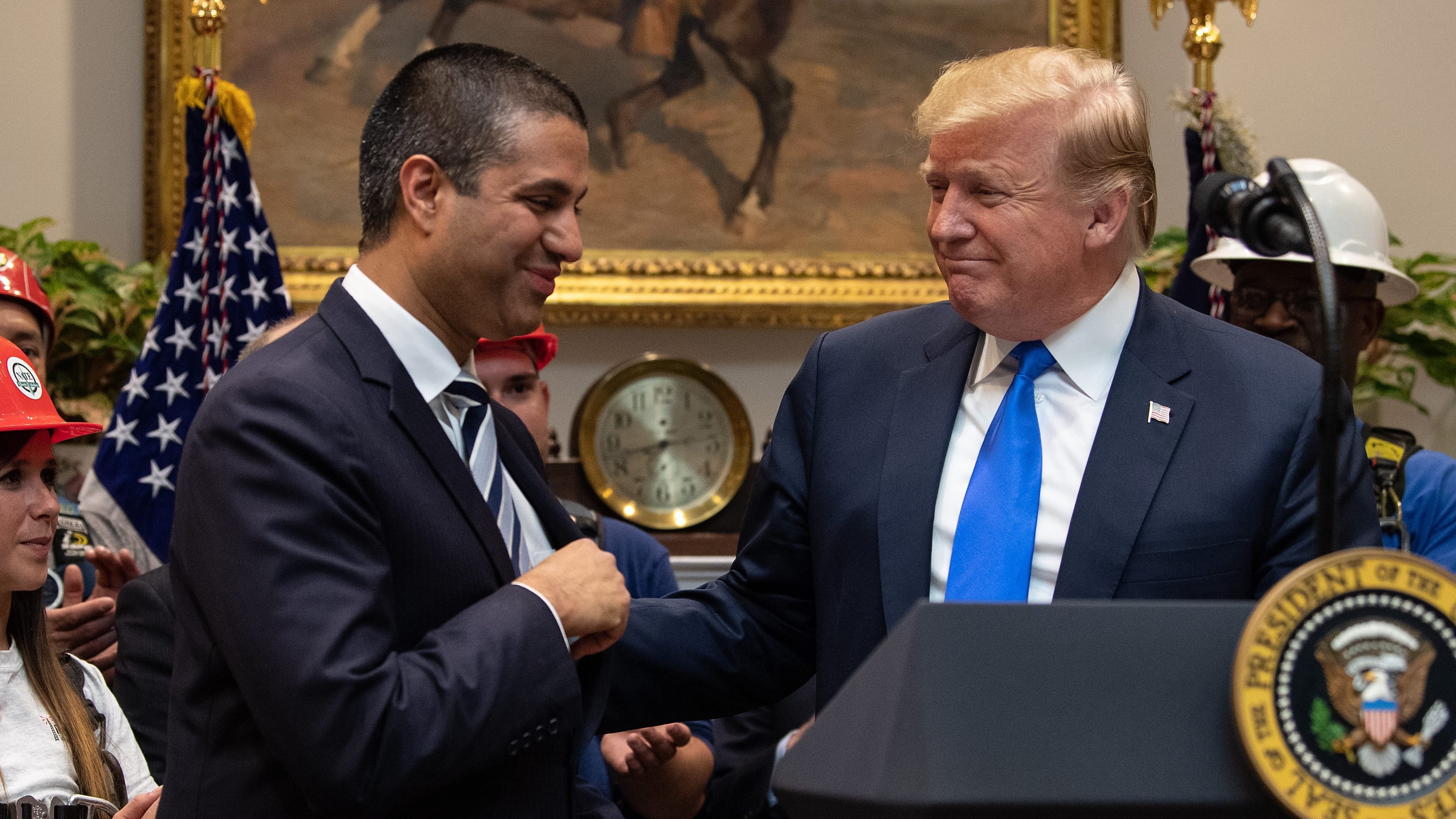WASHINGTON — The chairman of the Senate Armed Services Committee is cranking up the heat on Ligado Networks with new legislation that would require the company to cover the costs of any Global Positioning System user — government or commercial — that is hurt by the company’s newly approved use of L-Band spectrum, C4ISRNET has learned.
A bill from Sen. Jim Inhofe, R-Okla., would escalate the potential cost facing Ligado as it moves to set up a system of networks that government agencies and commercial trade groups alike have said could damage GPS reliability inside the United States. It’s the latest gambit from opponents to slow or halt altogether Ligado’s planned spectrum use
Inhofe is expected to introduce the Recognizing and Ensuring Taxpayer Access to Infrastructure Necessary (RETAIN) for GPS and Satellite Communications Act as early as next week. A Senate source familiar with the process said the chairman wants “a good number of cosponsors” lined up before introducing the language.
The FCC voted unanimously April 20 to approve the plan from Ligado networks to use L-Band, described as the range of frequencies between 1 to 2 GHz. L-Band is vital to GPS and other international navigation systems because it can easily penetrate clouds, fog, rain and vegetation. Ligado owns a license to operate the spectrum near GPS, which it says it will use to build a 5G network to boost connectivity for the industrial “internet of things” market.
However, opponents — including the Department of Defense and a number of non-defense industry trade groups — argue that Ligado’s plan would create wide ranging disruptions for GPS usage, hurting both warfighters and commercial ventures in the United States. Ligado has pushed back at those claims.
“GPS and satellite communications doesn’t only impact our military — we rely on it for so much of our day to day lives, which is why we need to take steps to protect not just DoD from the harmful decision, but all agencies, private entities and consumers too,” Inhofe said in a June 18 statement to C4ISRNET.
“When Ligado’s effort to repurpose spectrum causes interference in the infrastructure of those systems, as tests have shown it will, consumers and taxpayers can’t afford the burden of updating countless systems. That cost should only be borne by the responsible party: Ligado. With all the money they are paying their lobbyists, they should be prepared to pay this too.”
Ashley Durmer, a Ligado spokeswoman, told C4ISRNET that “Sen. Inhofe doesn’t need to worry about interference from Ligado; the spectrum experts at the DOD, the NTIA and the FCC all agree on that. And Ligado will honor each and every license condition imposed on it by the FCC.
“The legislation he may propose could slow down 5G and cost jobs, but it won’t change the fact that DOD is using its influence to take spectrum that does not belong to it,” she added.
Extra Costs
Under the FCC’s order, Ligado must pay to upgrade or replace any government devices that are hurt by their system, a remedy the company says it has a plan in place for. That order would not cover the private sector.
But Inhofe’s bill would go much further, requiring the company to cover costs by all users who claim interference. And while the FCC order requires only that Ligado pay to replace the receiver, Inhofe’s language would cover costs including, but not limited to, any engineering, construction, site acquisition, research, personnel or contracting staff, and labor associated with the replacement efforts.
For example, if DoD needed to design a new receiver, Ligado would be obligated to cover not just installation costs, but design costs down to hourly wages of engineers working the project. Given the vast majority of GPS users are non-governmental, such language would greatly increase the costs to Ligado,
In addition, Ligado would be obligated to “upgrade, repair, or replace potentially impacted covered GPS devices and satellite communications receivers, including costs of any modification, repair or replacement of equipment, spares, associated ancillary equipment, software, facilities, operating manuals, training, or compliance with regulations,” under the legislation reviewed by C4ISRNET.

Notably, the restrictions cover Ligado and “any subsequent holder of a license in the 1525–1559 megahertz band or the 1626.5–1660.5 megahertz band.” That language comes amid widespread industry speculation that Ligado hopes to sell its L-Band frequencies, with Verizon seen as the most likely customer.
Tim Farrar, an independent technology consultant, said that if passed, “this draft legislation would allow the DoD to burden Ligado with significant costs for future testing and equipment replacement based on a low threshold of any interference whatsoever.
“Unlike the FCC order, that would also be the case even if the spectrum was sold to Verizon for use in an L+C plan and no base stations were ever deployed using the 1526-36MHz L-band downlink,” he added.
Inhofe and Ligado
The RETAIN GPS act is Inhofe’s second legislative push against Ligado to emerge in the past week, following the SASC’s version of the 2021 National Defense Authorization Act, which would slow the use of DoD funds to support Ligado in any way and requests an independent technical assessment from the National Academies of Science and Engineering.
Because the new legislation falls outside Inhofe’s purview as SASC chair and under the jurisdiction of the Senate Commerce, Science, & Transportation Committee, he will need to attract co-sponsors from that committee. Commerce’s ranking member, Sen. Maria Cantwell, D-Wash., was among 31 signatories to Inhofe’s May 15 letter to the FCC, which urged a reversal of its approval for Ligado.
The next question Inhofe faces is whether the bill will find support in the House. Both House Armed Services Committee chairman Adam Smith, D-Wash., and ranking member Mac Thornberry, R-Texas, have been critical of the FCC’s Ligado vote, and a trio of key subcommittee members last week asked the commission’s Inspector General to launch an investigation into a potential conflict of interest within the FCC.
Inhofe first indicated a willingness to push legislation in mid-April, shortly after C4ISRNET first reported that the FCC was poised to approve Ligado’s request. He also held a May 6 SASC hearing which hosted only Defense Department witnesses opposed to Ligado’s plan. There, Inhofe blasted the FCC for what he described as a duplicitous move to avoid opposition from federal agencies.
“A few powerful people made a hasty decision over a weekend, in the middle of a national crisis, against the advice of every other agency involved and without cluing the president in on any of this,” Inhofe said, adding he had talked with U.S. President Trump and “I can assure you that is the case.”
“We want to get this thing reversed,” Inhofe said at the hearing.
Aaron Mehta was deputy editor and senior Pentagon correspondent for Defense News, covering policy, strategy and acquisition at the highest levels of the Defense Department and its international partners.
Joe Gould was the senior Pentagon reporter for Defense News, covering the intersection of national security policy, politics and the defense industry. He had previously served as Congress reporter.








